NASA expands research into mining lunar ice, minerals to sustain humans on the moon
Tuesday, 08 March 2022 04:50 NASA's desire to mine ice and minerals on the moon is driving new research on Earth into how astronauts could use moon materials to make machine parts, pave roads and construct living quarters. Scientists have studied lunar rocks brought back from Apollo missions, and NASA has confirmed the existence of water ice in craters on the moon's South Pole. University scholars and engineers at NASA are
NASA's desire to mine ice and minerals on the moon is driving new research on Earth into how astronauts could use moon materials to make machine parts, pave roads and construct living quarters. Scientists have studied lunar rocks brought back from Apollo missions, and NASA has confirmed the existence of water ice in craters on the moon's South Pole. University scholars and engineers at NASA are Probe to look for water on moon
Tuesday, 08 March 2022 04:50 China plans to send its Chang'e 7 robotic probe to search for water and other resources at the moon's south pole, according to a leading space scientist.
"The Chang'e 7 mission is set to find traces of ice at the south pole, investigate the environment and weather there, and survey its landforms," said Wu Weiren, chief designer of China's lunar exploration program and an academician of the
China plans to send its Chang'e 7 robotic probe to search for water and other resources at the moon's south pole, according to a leading space scientist.
"The Chang'e 7 mission is set to find traces of ice at the south pole, investigate the environment and weather there, and survey its landforms," said Wu Weiren, chief designer of China's lunar exploration program and an academician of the Challenges await sample-return expedition to Mars
Tuesday, 08 March 2022 04:50 Chinese scientists and engineers will need to solve a host of technological challenges to accomplish an ambitious sample-return mission to Mars, said Wu Weiren, a key figure in the country's deep-space exploration program and also a top political adviser.
A senior scientist with the China National Space Administration and academician of the Chinese Academy of Engineering, Wu said the missi
Chinese scientists and engineers will need to solve a host of technological challenges to accomplish an ambitious sample-return mission to Mars, said Wu Weiren, a key figure in the country's deep-space exploration program and also a top political adviser.
A senior scientist with the China National Space Administration and academician of the Chinese Academy of Engineering, Wu said the missi Event horizons are tunable factories of quantum entanglement
Tuesday, 08 March 2022 04:50 LSU physicists have leveraged quantum information theory techniques to reveal a mechanism for amplifying, or "stimulating," the production of entanglement in the Hawking effect in a controlled manner. Furthermore, these scientists propose a protocol for testing this idea in the laboratory using artificially produced event horizons. These results have been recently published in Physical Review Le
LSU physicists have leveraged quantum information theory techniques to reveal a mechanism for amplifying, or "stimulating," the production of entanglement in the Hawking effect in a controlled manner. Furthermore, these scientists propose a protocol for testing this idea in the laboratory using artificially produced event horizons. These results have been recently published in Physical Review Le Detecting ultralight dark matter using quantum technology
Tuesday, 08 March 2022 04:50 A new study led by Tel Aviv University researchers demonstrates unprecedented sensitivity to an exciting dark matter candidate. As part of the new NASDUCK ("Noble and Alkali Spin Detectors for Ultralight Coherent dark-matter") collaboration, the researchers developed unique innovative quantum technology that enables receiving more accurate information on invisible theoretical particles "suspecte
A new study led by Tel Aviv University researchers demonstrates unprecedented sensitivity to an exciting dark matter candidate. As part of the new NASDUCK ("Noble and Alkali Spin Detectors for Ultralight Coherent dark-matter") collaboration, the researchers developed unique innovative quantum technology that enables receiving more accurate information on invisible theoretical particles "suspecte NeoPhotonics offers ultra-narrow linewidth laser for LEO satellites
Tuesday, 08 March 2022 04:50 NeoPhotonics Corporation (NYSE: NPTN), a leading developer of silicon photonics and advanced hybrid photonic integrated circuit-based lasers, modules and subsystems for bandwidth-intensive, high-speed communications networks, has announced its new Radiation Tolerant version of its industry leading Nano ultra-pure light tunable laser which has been designed for use in low earth orbit satellite co
NeoPhotonics Corporation (NYSE: NPTN), a leading developer of silicon photonics and advanced hybrid photonic integrated circuit-based lasers, modules and subsystems for bandwidth-intensive, high-speed communications networks, has announced its new Radiation Tolerant version of its industry leading Nano ultra-pure light tunable laser which has been designed for use in low earth orbit satellite co China's space station to host 6 astronauts by end of 2022
Tuesday, 08 March 2022 04:50 China's space station is expected to host six astronauts from two spaceships by the end of 2022, according to the chief designer of the country's manned space program.
The Shenzhou-13 crew has been in orbit for 140 days. They are in good health, and have so far completed all planned or added tasks as needed. They are expected to return to Earth in mid-April, Zhou Jianping said.
This
China's space station is expected to host six astronauts from two spaceships by the end of 2022, according to the chief designer of the country's manned space program.
The Shenzhou-13 crew has been in orbit for 140 days. They are in good health, and have so far completed all planned or added tasks as needed. They are expected to return to Earth in mid-April, Zhou Jianping said.
This China launches seven new satellites
Tuesday, 08 March 2022 04:50 China has successfully sent seven satellites into space from the Xichang Satellite Launch Center in southwest China's Sichuan Province Saturday.
Six satellites produced by Beijing-based GalaxySpace and a commercial remote sensing satellite were launched by a Long March-2C carrier rocket at 2:01 p.m. (Beijing Time) and have entered their planned orbit.
The satellites will verify the n
China has successfully sent seven satellites into space from the Xichang Satellite Launch Center in southwest China's Sichuan Province Saturday.
Six satellites produced by Beijing-based GalaxySpace and a commercial remote sensing satellite were launched by a Long March-2C carrier rocket at 2:01 p.m. (Beijing Time) and have entered their planned orbit.
The satellites will verify the n Beames becomes SpiderOak’s chairman of the board
Tuesday, 08 March 2022 04:01
SmallSat Alliance Chairman Charles Beames is taking the helm of cybersecurity firm SpiderOak as chairman of the board.
The post Beames becomes SpiderOak’s chairman of the board appeared first on SpaceNews.
Space station to host 'self-healing' quantum communications tech demo
Monday, 07 March 2022 20:32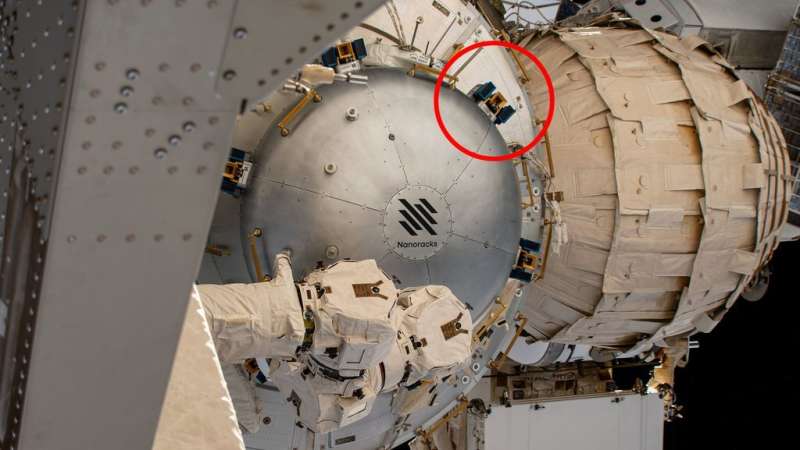
A tiny experiment launching to the International Space Station later this year could set the stage for a future global quantum network. Called the Space Entanglement and Annealing QUantum Experiment (or SEAQUE), the milk-carton-size technology demonstration will test two communications technologies in the harsh environment of space.
Quantum computers hold the promise of operating millions of times faster than conventional computers, and distributed quantum sensors may lead to new understandings of Earth and our place in the universe by measuring minute changes in gravity.
Intelsat picks David Wajsgras as next CEO
Monday, 07 March 2022 20:00
Intelsat has picked former Raytheon executive David Wajsgras as CEO to lead the satellite operator post-bankruptcy.
The post Intelsat picks David Wajsgras as next CEO appeared first on SpaceNews.
Op-ed | Russian threats a reminder of the need to protect GPS
Monday, 07 March 2022 20:00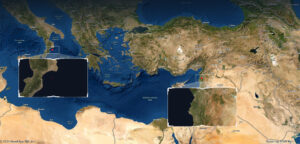
The space-based navigation capabilities of the United States and its allies remain vulnerable to spoofing, denial and attack
The post Op-ed | Russian threats a reminder of the need to protect GPS appeared first on SpaceNews.
NASA's Psyche gets huge solar arrays for trip to metal-rich asteroid
Monday, 07 March 2022 17:14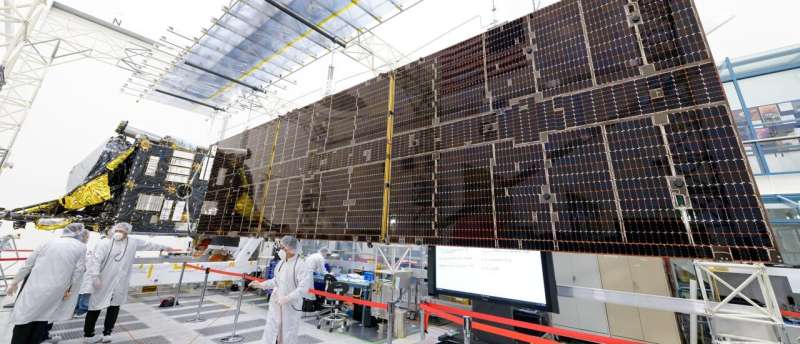
With its solar arrays installed, the spacecraft is close to its final configuration ahead of a planned August launch.
NASA's Psyche mission is almost ready for its moment in the Sun—a 1.5-billion-mile (2.4-billion-kilometer) solar-powered journey to a mysterious, metal-rich asteroid of the same name. Twin solar arrays have been attached to the spacecraft body, unfolded lengthwise, and then restowed.
Hubble's Advanced Camera for Surveys celebrates 20 years of discovery
Monday, 07 March 2022 16:27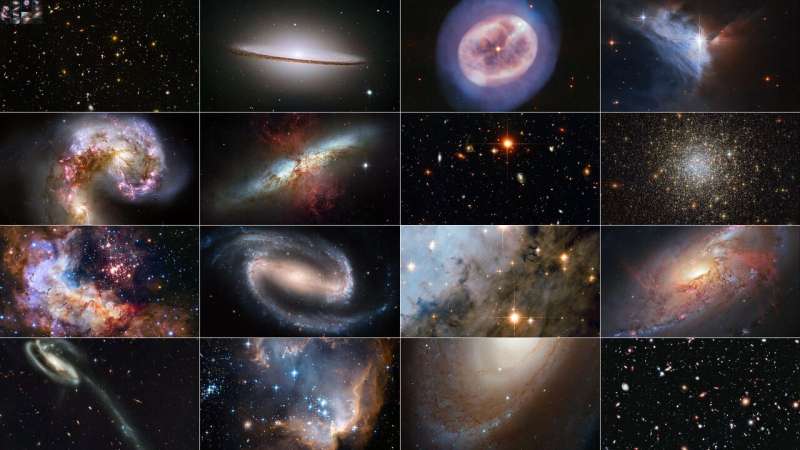
Today marks the 20th anniversary of the Advanced Camera for Surveys (ACS) aboard the NASA/ESA Hubble Space Telescope. On 7 March 2002 astronauts installed the ACS during Hubble Servicing Mission 3B, also known as STS-109. With its wide field of view, sharp image quality, and high sensitivity, the ACS delivers many of Hubble's most impressive images of deep space.
The ACS wavelength range extends from the ultraviolet, through the visible and out to the near-infrared. Its name, the Advanced Camera for Surveys, comes from its particular ability to map large areas of the sky in great detail. The ACS can also perform spectroscopy with a special optical tool called a grism.
Three subinstruments make up the ACS. The Wide Field Channel is a high-efficiency, wide-field, optical and near-infrared camera that is optimized to hunt for galaxies and galaxy clusters in the remote and ancient Universe, at a time when the cosmos was very young. The High Resolution Channel was designed to take extremely detailed (high resolution) pictures of the light from the centers of galaxies with massive black holes, though this is not currently operational, and the Solar Blind Channel blocks visible light to allow faint ultraviolet radiation to be discerned.
NASA rocket launches from Alaska in search of aurora answers
Monday, 07 March 2022 14:51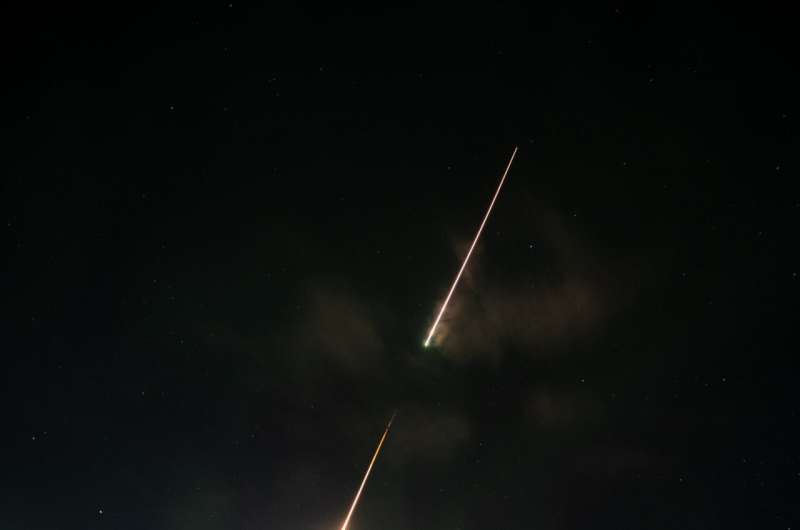
A NASA Black Brant IX sounding rocket soared high out of Poker Flat Research Range north of Fairbanks at 2:27 a.m. Saturday to learn more about pulsating aurora.
The Loss through Auroral Microburst Pulsations, or LAMP, experiment seeks to determine whether the pulsating aurora is connected to another phenomenon called microbursts, higher-energy electrons from the Earth's magnetosphere driven toward Earth in bursts that last about one-tenth of a second. That is faster than the pulsating aurora but similar to the flickering inside the pulsations.
A pulsating aurora looks patchy and occurs within minutes or sometimes hours after the conclusion of a discrete aurora, the familiar curtain-like type of aurora.
The launch had been repeatedly postponed since the Feb. 24 opening of the launch window because scientists needed the right combination of active aurora and good weather at a camera site in Venetie, which is located more than 130 miles north of the range.
Weather and aurora activity improved in recent days. Alexa Halford, space physics researcher at NASA's Goddard Space Flight Center and the experiment's lead investigator, detected pulsating aurora over Venetie early Saturday and determined that launch conditions were favorable.
